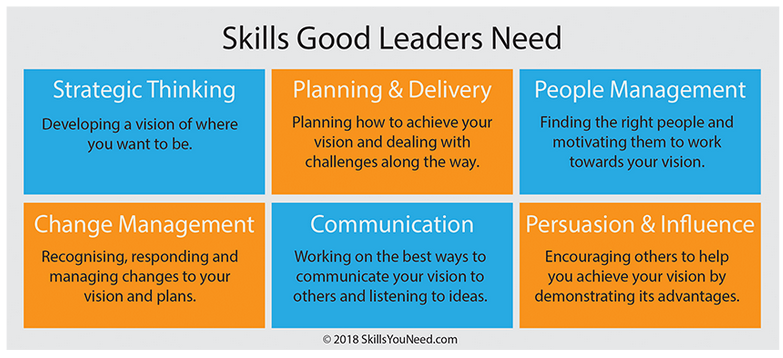Social – awareness

Negotiation and conflict resolution
When two or more parties wish, through communication, to reach an agreement, which will reconcile their respective interests, this process is called negotiation (Negotiate to Resolve Conflict, 2020).
Conflict arises when two or more parties have different interests, opinions, values or problem-solving strategies and when one party feels that the other one interferes aiming at reaching its goals at all costs (Janasz et al., 2018).
Conflict resolution is a way to effectively face these conflicts and ensure that objectives are met (Vogt, 2016).
Negotiation strategies:
Avoid being provoked into an emotional response: The other party – whether a group or an individual – might try to challenge you or criticize you, so that you lose your temper, respond emotionally, and thus, shifting the balance of power in their favor, by accusing you of overreacting (Shonk, 2020). For example, they might say “You can’t be serious” or “Don’t be so sensitive”. The worst thing to do in such cases is to respond, while you have already lost your temper. Here is a piece of advice (Shonk, 2020):
- Take a break in order to gain back emotional control and calm down.
- Try naming the move. Let your co-worker know that you understand that this is a power play and answer something like “Instead of cutting me off, how about give me the time to clarify my proposal?”.
- Defend yourself. When you are falsely accused of making a decision that went wrong, provide your accuser with evidence that proves him wrong.
- Shift the focus back to the core issue. Do not let him distract you from the initial problem.
Use time to your advantage: Our perceptions concerning conflict resolution process may change over time. Both parties may come up with a new idea, compromising both sides and finally resolving the conflict (Shonk, 2020).
Conflict resolution strategies
Conflict resolution strategies are pretty much the same with negotiation strategies. Let’s take a look (Janasz et al., 2018).
- Take a break and control your emotions.
- Recognize and clarify the issues and goals.
- Decide when is the right time to get involved.
- Try to find out a common goal.
- Listen first to show respect and encourage others to do so.
- Recognize cultural differences.
Develop Leadership Skills
A brief definition of leadership is the ability to motivate and organize others in order to reach a common goal (Tony, 2020). Leadership skills are essential in the working environment, as they can create strong teams that achieve their goals on time. Leadership skills may differ among people.
Leadership skills
Almost any positive skill could be considered as a leadership skill. Empathy, patience, active listening, reliability, flexibility, integrity and giving effective feedback are all important traits for a leader to have (Leadership Skills: Definitions and Examples, 2021). Some of the most essential leadership skills are listed below (Skills Good Leaders Need, 2018):

How to develop leadership skills
(9 Ways to Develop Your Leadership Skills, 2017)
- Practice discipline: Discipline is necessary for a good leader.
- Take on more projects: By taking on more responsibilities than those mentioned in your job description and always as much as you can handle, you will show that you are willing to step out of your comfort zone and take initiatives.
- Learn to follow: A good leader should trust his employees and give them the chance to take control on some issues.
- Develop situational awareness: Be able to spot a potential problem and take action before it is too late. Provide suggestion on how to avoid a potential difficulty.
- Inspire and motivate others: When a colleague needs guidance or advice, offer it. You will make him/her feel more secure and this will yield better outcomes.
- Keep learning: It is of vital importance to always learn new things and keep your mind sharp. Face new challenges and hone your skills.
- Empower your teammates: Spot your colleagues’ skills and assign tasks according to their strengths.
- Resolve conflict: There is no need to start shouting or be offensive, if something goes wrong. Talk to those responsible for the mistake in private and address the problem. Consider rebuilding the team, if the problem can’t be solved.
- Be an observational listener: Listen to suggestions and ideas of others, ask for their feedback and notice also their body language.
Activity:
Follow the link and try the 30-Question leadership quiz:
Emotional intelligence and emotional integrity skills
Many people are aware of the IQ (Intelligence Quotient), which refers to the measurement of the intellectual intelligence (Copyright skillsyouneed.com 2011-2021). Emotional intelligence (EI) or Emotional Quotient (EQ) is a type of social intelligence that involves the ability to manage and monitor one’s own as well as others’ emotions, to discriminate among them, and to use the information to guide one’s thinking and actions (Salovey & Mayer, 1990). It can be developed and improved by learning and practicing new skills.
“Emotional integrity is the personal achievement of emotional strength, discipline, and completeness that remains constant no matter what others say or do. It includes both a control of emotions and an honest acknowledgement of them—pleasant or unpleasant” (Emotional Integrity – Angie Greaves, n.d.).
Components of Emotional Intelligence and how to improve these emotional skills
Daniel Goleman, a behavioral scientist, suggests 5 domains of emotional intelligence (5 Key Components of Emotional Intelligence, 2021).
1. Self-Awareness
How to improve self-awareness

2. Self-Regulation: Self-regulation means to express emotions appropriately. Those who are self-regulated are usually better in conflict resolution, recognize their mistakes and tend to be more flexible.
How to improve self-regulation

3. Social skills: Finding ways to communicate and interact effectively with others is another aspect of emotional intelligence. Social skills help you create easier relationships both in personal and the professional life.
How to improve social skills

4. Empathy: Empathy is the ability to be aware of how others feel and respond to people keeping in mind this awareness. This domain is the most critical for emotional intelligence.
How to improve empathy

5. Motivation: Intrinsic motivation means that a person is motivated by things beyond external rewards such as money and fame. These people have the passion to fulfil their own goals and tend to have a specific plan.
How to improve motivation

Benefits of high Emotional Intelligence

Some examples of how emotional intelligence looks like in the workplace are listed below (Miller, 2020):
- People express themselves respectfully unafraid of insulting their co-workers.
- New initiatives are welcomed.
- Flexibility is present.
- Employees spend time together in other environments.
- Active listening is present.
- Employees feel free to share their problems.
Activity:
Follow the link and try the quiz regarding Emotional Intelligence

